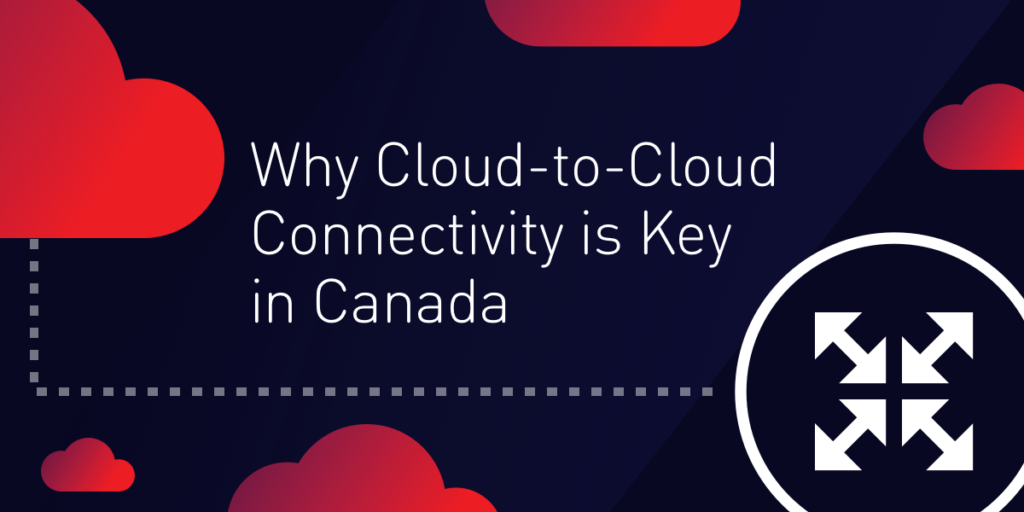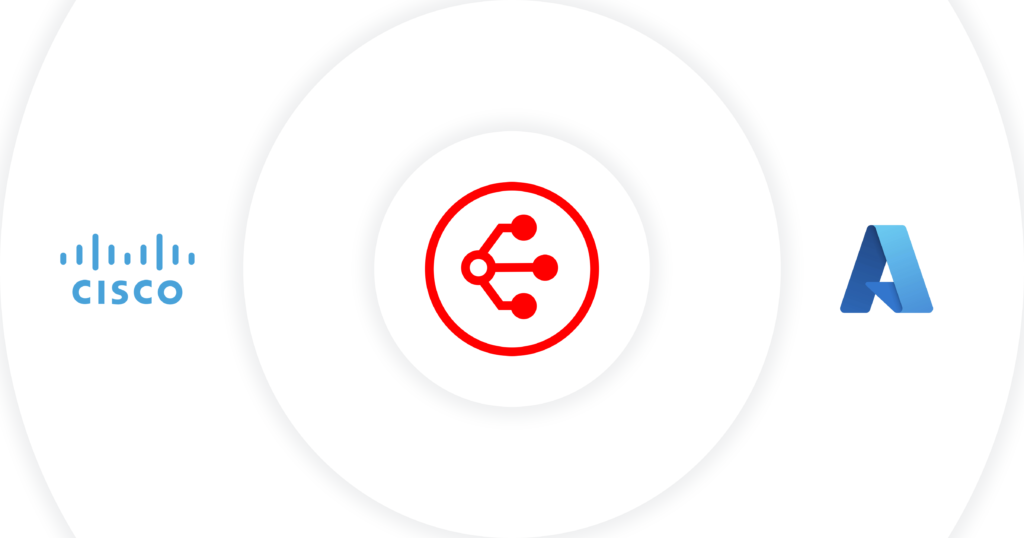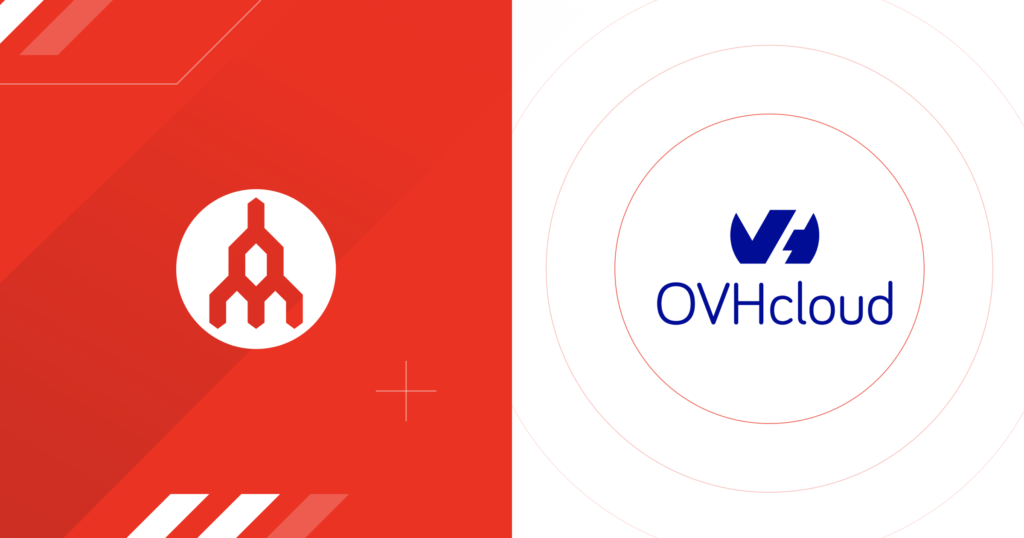
Why Cloud-to-Cloud Connectivity is Key in Canada
- Cloud networking
- December 18, 2020
- RSS Feed
Eliminate unnecessary latency and modernise your network with direct cloud-to-cloud connectivity.
Let’s say your company is located in Calgary and uses Oracle and AWS clouds to run its Oracle databases, with data being sent between the two providers. Common examples of this are companies running Oracle databases within an AWS virtual machines.
All of the major cloud providers in Canada – AWS, Microsoft Azure, Google Cloud – have their physical infrastructure located in Toronto, Montreal, or Quebec City. In Canada, there are no cloud regions west of Toronto and currently there are no plans for any of the big hyperscalers to build out new regions in central and western Canada. Your traffic would go from the Oracle region in Toronto or Montreal back to your on-premises network in Calgary and hairpin back out to the AWS infrastructure in Montreal. This routing scenario is illustrated in the diagram below.

The Result? Big-Time Latency
Depending on the applications you’re running, having your data bouncing back and forth between Toronto or Montreal and Calgary will result in high latency and significant performance issues for the end user. If you go to the Megaport website and look at our Network Latency data, taken from monitoring equipment inside Megaport-enabled data centres around the world, you’ll see that average monthly latency between data centres in Calgary to data centres in Toronto averages between 40 and 43 milliseconds. Latency averages between Calgary data centres and ones in Montreal are even higher, between 48 and 50 milliseconds.
Data Sovereignty in Canada
These high levels of latency are especially relevant to Canadian businesses either operating in, or dealing with, industry sectors that must account for data sovereignty. Data stored in Canada falls within the jurisdiction of Canada’s historically strong privacy laws. Once data is allowed to cross Canada’s southern border into the United States, it’s no longer protected by Canadian law.
Industry sectors that are particularly sensitive to data sovereignty include government and defense, oil, gas, and hydroelectricity, as well as public utilities and local municipalities. For organisations that must account for data sovereignty regulations, sending their packets to data centres on the West Coast of the United States to lower latency and improve application performance simply isn’t an option.
The Solution? Cloud-to-Cloud Routing
If cloud-to-cloud connectivity was used as part of your network architecture, your data in Toronto or Montreal could be directly connected to the Oracle and AWS clouds. Traffic would take the shortest route between the two clouds, removing the extra latency from the data going back and forth to Calgary.
Cloud-to-cloud connectivity is made possible with Megaport Cloud Router (MCR), a virtual routing service that can be spun up in Toronto or Montreal, immediately giving your business private connectivity at Layer 3 in bandwidth options of 1 Gbps, 2.5 Gbps, 5 Gbps and 10 Gbps – all without any new hardware. MCR is available in a number of different data centres in Toronto or Montreal, allowing you to also easily build redundancy into your network design.
This cloud-to-cloud solution is illustrated in the diagram below.

You can also have traffic go directly from the cloud provider to your on-premises network without any unnecessary latency. And things are even simpler if your data doesn’t even need to go to any on-premises infrastructure – you could implement a solution such as the one shown in the diagram below.

Of course, MCR works with all of the major cloud providers as well as any of the companies that are part of the Megaport Marketplace (such as iLand, IronCloud, and Wasabi). Because MCR doesn’t require the deployment of any new physical connections, it can be spun up and ready to use in just minutes at any Megaport-enabled location around the world.
You wouldn’t even need a physical point of presence in Toronto or Montreal.
Learn More
Click here for the complete list of MCR locations. To learn more about Megaport Cloud Router, visit the MCR services page on Megaport.com.





